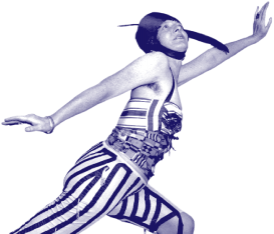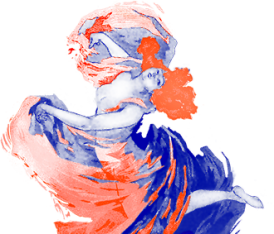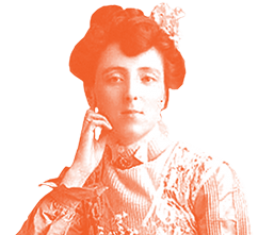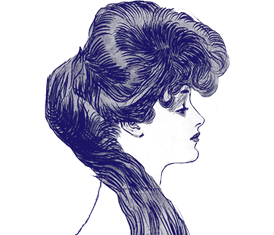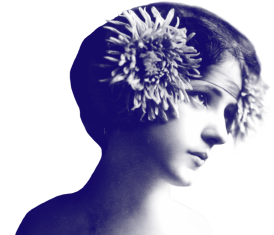Body Sweats: The Uncensored Writings of Elsa von Freytag-Loringhoven
16 JAN 2012
Written by Samantha Marenghi
Baroness Elsa von Freytag-Loringhoven (1874-1927) was a German-born avant-garde, Dadaist artist and poet. Body Sweats: The Uncensored Writings of Elsa von Freytag-Loringhoven is the first major English collection of her work, and was edited by the Baroness' biographer Irene Gammel and poet and poetics scholar Suzanne Zelazo.
She is one of the almost-forgotten names of modernism, though well-known among the literati of the 1920's. She was part of the New York dada scene with Marcel Duchamp, and was close friends with Djuna Barnes. She appears briefly in Pound's Canto XCV, which laments that she went "mad". The blurb describes her aptly as "a neurasthenic, kleptomaniac, man-chasing proto-punk poet and artist". It goes on: She "not only dressed and behaved with purposeful outrageousness, but she set an example that went well beyond the eccentric divas of the twenty-first century, including her conceptual descendant, Lady Gaga." This collection fulfils the Baroness' desire to see her poetry published in a book, a project she began but did not achieve during her lifetime. Djuna Barnes, a close friend and editor, never got around to publishing her work posthumously.The book has a detailed scholarly introduction which contextualizes the poems and gives some background. Poems are organized by theme. The Baroness' poetry typically speeds vertically down the page, with a lot of line dashes to add emphasis and speed:
I
Taint
Thy
Teeth
Into
Slashing
Me —
And the slower, beautiful:
Night pitched
Swift erethought —
Trail switched
Into nought —
She was a "witty and aggressively erotic writer", as this book demonstrates. Some of her neologisms (typically two words conjoined) are delightfully provocative: "Spinsterlollipop", "clinglust", and "satanslant". There is much more provocative language, including some slight anti-Semitism which the editors discuss, some blasphemous references to Christ and a farting God. Another figure that comes under fire is "Marcel Dushit", her ex-lover. Some are sound poems, demanding to be read aloud, while other performance poems are simply photos of the Baroness, in all her glory, in striking contortions and getup. The book is presented well, with big colour reprint of some of the Baroness' drafts with accompanying doodles. The book is a wonderful accomplishment, and a testament to the Baroness' eccentricity.
Read the review at London Student








